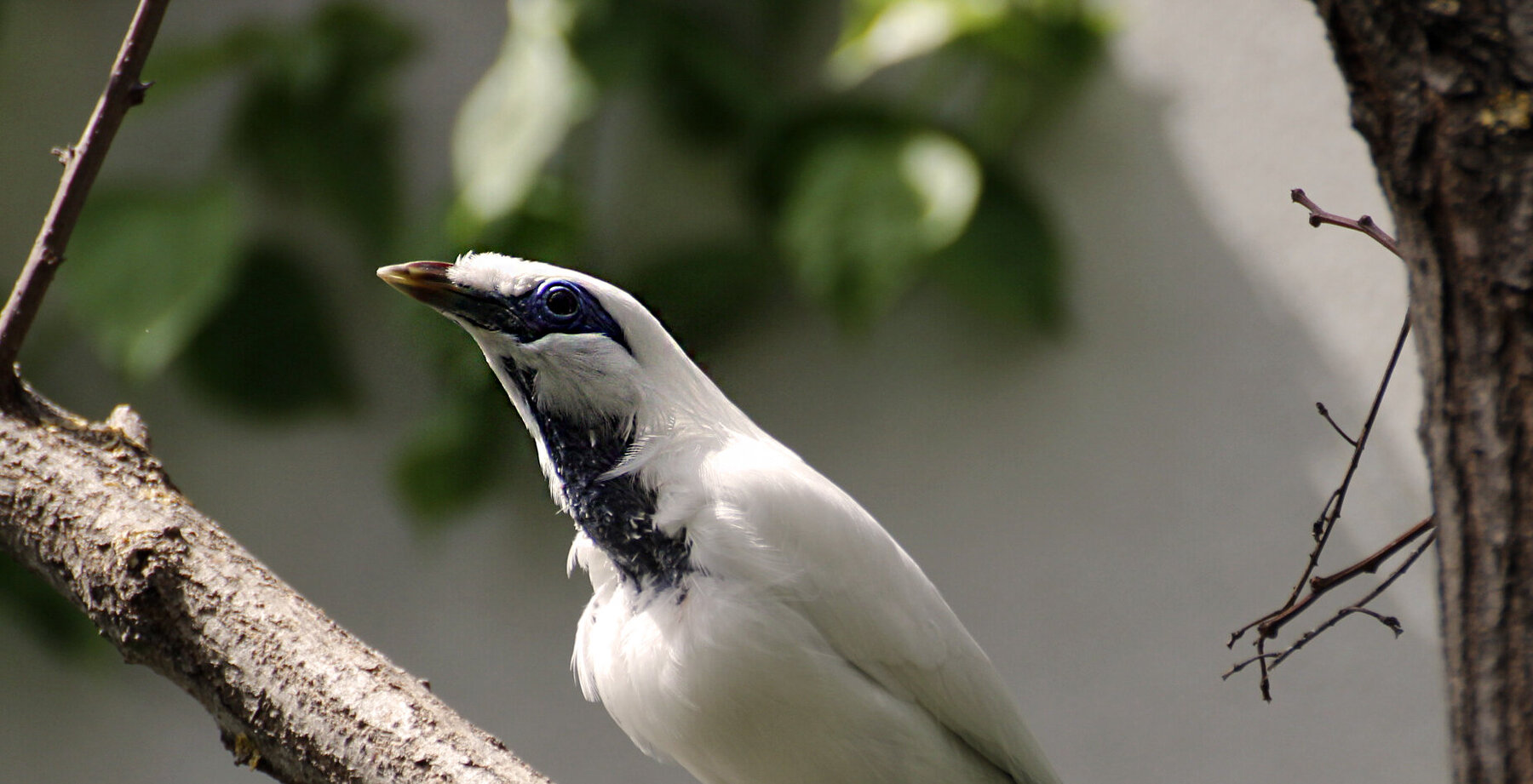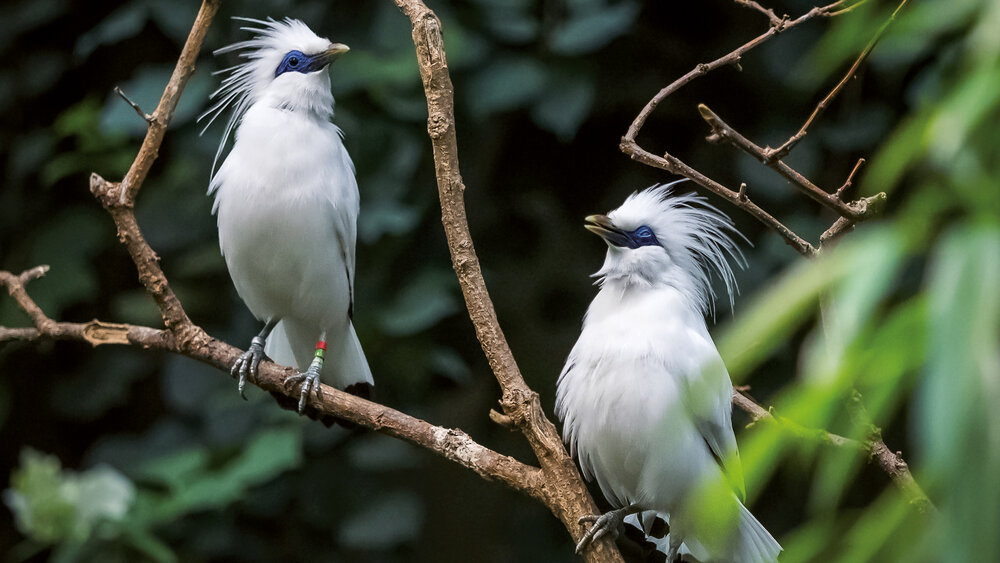
Songbirds
Zoo Berlin is committed to protecting the songbirds of Southeast Asia.
Project facts
- Project name
Prigen Conservation Breeding Ark (PCBA)
- Species
Various songbirds (Passeri)
- IUCN threatened status
Various
- Project location
Indonesia
- Greatest threat
Poaching
- Response
Developing a breeding programme; reintroducing birds into their natural habitat
Vocal prowess
The bird kingdom contains some 4,000 species of songbird, including the Java sparrow, the hill myna, and the Bali myna. Scientists believe that songbirds originated in Australia and slowly spread to Southeast Asia. Today, they are at home all over the world. A particularly rich variety of songbird species can be found in the tropical rainforests of Southeast Asia – particularly those of Indonesia. The archipelago is home to more than 1,500 bird species – roughly a third of which are found nowhere else in the world. However, for a number of years, Indonesia’s songbird population has been in sharp decline.
Harmful traditions
The rapid disappearance of these birds is tied to a cultural tradition in the region. Aviaries have always been popular in Indonesia, and roughly one in five households has a bird as a pet. Fierce competition also exists among songbird keepers, as owning the most talented songbird with the most beautiful song not only confers higher social status, it also has a financial incentive. The tradition of songbird competitions still enjoys widespread popularity, and has now grown into a genuine sporting event with a following comparable to that of football in Europe. That means there is real money to be made from the sale of songbirds.
Unhappy captives
Songbirds hatched in the wild are believed to possess more beautiful songs than their relatives bred in captivity. What’s more, it is often easier to catch birds in the wild than it is to breed them, as many captured birds die shortly after being shut in a cage. Indonesian songbirds are also hunted for export, consumption, and medicinal use. Demand for the birds is therefore high, negatively affecting hundreds of species and millions of individual birds every year.
Back to the woods
Zoo Berlin and other German zoos worked with animal park Taman Safari Indonesia to build a local breeding and conservation station in East Java. This facility is now actively breeding threatened songbird species in order to release them back into their original habitat. Zoo Berlin also participated in the EAZA campaign Silent Forest, which works to build global awareness of the serious threat facing the world’s songbirds. We will continue to work with many other zoos to provide the financial support, human resources, and additional expertise required to save the songbirds of Southeast Asia from extinction.

